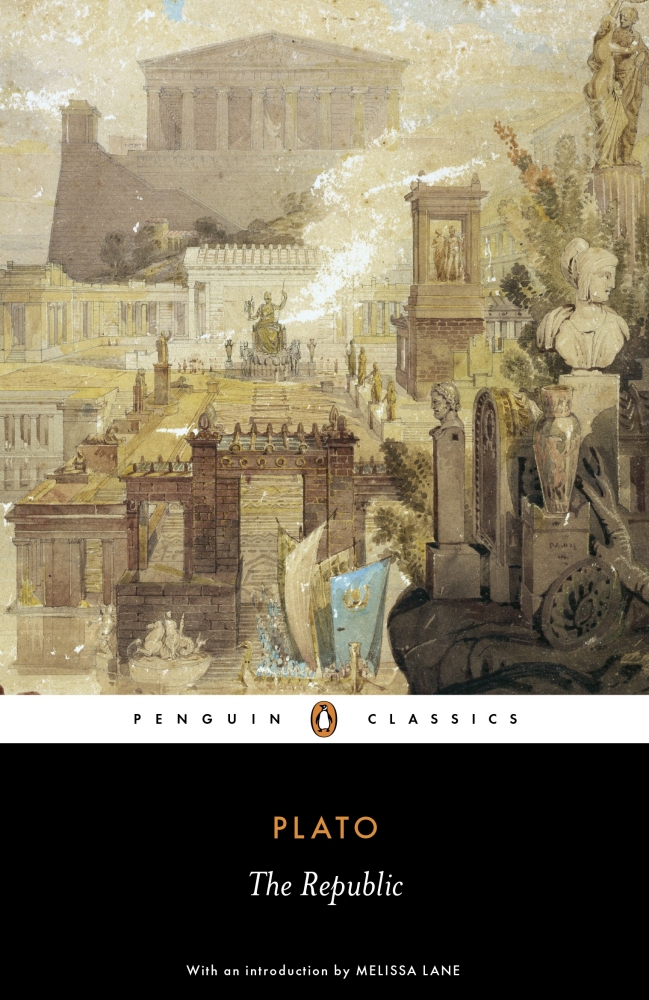Take Up and Read: The Republic
This current blog series on Reflections is intended to encourage Christians to read more vigorously by providing a beginner’s guide to some of the Christian classics in such fields as theology, philosophy, and apologetics. Hopefully, a brief introduction to these important Christian texts will motivate today’s believers—as St. Augustine was called to in his dramatic conversion to Christianity—to “take up and read” (Latin: Tolle lege) these classic books.

This week’s book, The Republic by the great Greek philosopher Plato, is not a Christian classic but rather a classic of Western civilization in the fields of philosophy and political theory. And though written around 2,400 years ago, this work continues to be amazingly relevant to contemporary society in asking questions about the nature of justice. Plato’s masterwork remains one the most widely read books in the world today.
Why Is This Author Notable?
Plato (ca. 427–347 BC) is one of the greatest thinkers in all of history. Once the student of the great philosopher Socrates, Plato would found arguably the first university in the Western world, the Academy, where the great philosopher Aristotle received his education. Alfred North Whitehead summed up Plato’s amazing philosophical influence by stating, “The safest general characterization of the European philosophical tradition is that it consists of a series of footnotes to Plato.”1
What Is This Book About?
The Republic, written around 380 BC, is Plato’s best-known work and stands as a true cornerstone of Western philosophy. Written in the form of a popular dialogue in which Socrates (Plato’s mouthpiece) questions his students and fellow Athenian citizens, The Republic focuses chiefly upon this question: “What is justice?” Plato argues that it is in everyone’s best interest to strive to live in a just society and to be a truly just person. In Plato’s mind, an ideal state is driven not by money, power, or celebrity but instead by the reflective wisdom of the “philosopher-king” (a truly wise and virtuous political leader).
In The Republic, Plato raises deep philosophical questions concerning goodness, reality, knowledge, and education. A gifted thinker and writer, Plato uses moving allegories to illustrate his theory of forms and his idea of the immortality of the human soul.
Here Plato notes that the just society can result only when kings truly become benevolent philosophers:
The society we have described can never grow into a reality or see the light of day, and there will be no end to the troubles of states, or indeed . . . of humanity itself, till philosophers become kings in the world, or till those we now call kings and rulers really and truly become philosophers, and political power and philosophy thus come into the same hands.2
Why Is This Book Worth Reading?
The Republic is a work of incalculable influence upon the Western world. Plato’s blueprint for a just society would influence such other classics of political thought as Cicero’s De Republica, St. Augustine’s City of God, and Thomas More’s Utopia. Many Christians through the centuries have seen much wisdom in Plato’s enduring work in ethics and politics.
Because it’s written in dialogue form, The Republic is a fascinating and accessible book. So, take up and read Plato’s philosophical masterpiece.
Resources
For a Christian evaluation of Plato’s thought, see Ronald H. Nash, Life’s Ultimate Questions: An Introduction to Philosophy (Grand Rapids: Zondervan, 1999), 59–95.
Check out more from Dr. Kenneth Samples @Reasons.org





